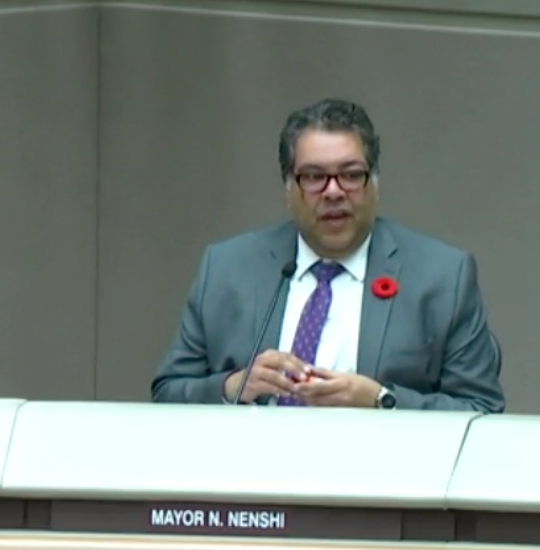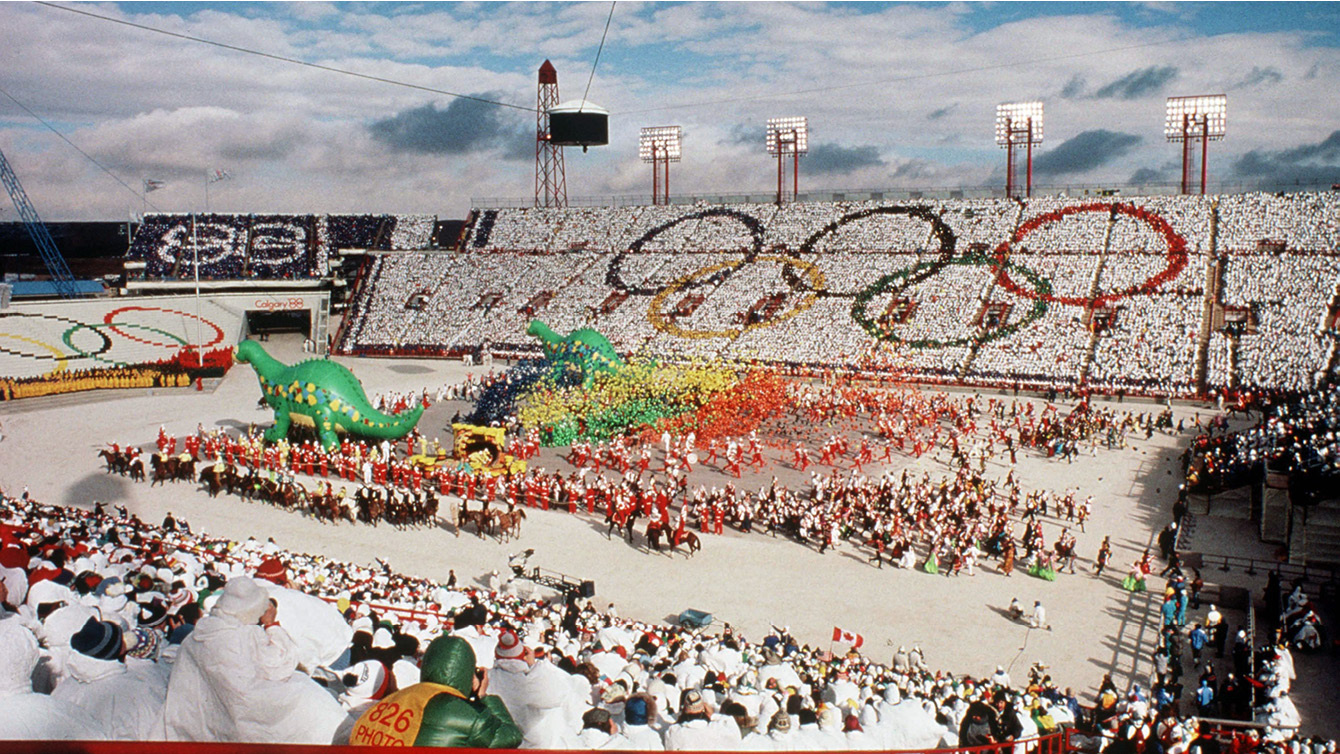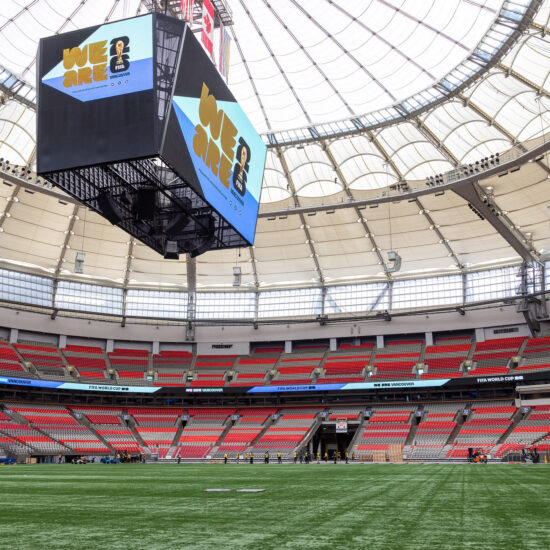
Bob Mackin
Like a ski jumper, Whistler’s potential to host two sports for the 2026 Winter Olympics is up in the air.
But it could come crashing down Oct. 31 in spectacular fashion, like Vinko Bogataj, the Yugoslav “agony of defeat” athlete from ABC’s Wide World of Sports.
Calgary city council’s 2026 Winter Olympics bid exploration committee voted 14-0 on Oct. 30 to ask the Oct. 31 city council meeting to cancel the Nov. 13 plebiscite and take all steps to wind-up the committee and the Calgary 2026 bid corporation. Ten votes are needed at city council to pull 1988-host Calgary out of the 2026 contest. Other 2026 bidders are Milan and Cortina d’Ampezzo, Italy, and Stockholm, Sweden.

Calgary’s McMahon Stadium in 1988 (Canadian Olympic Committee)
In September, when the vote was scheduled, Calgary officials estimated the Games would cost $5.2 billion, if awarded by International Olympic Committee next year. But the federal and Alberta governments, and the city of Calgary and town of Canmore failed to negotiate a $3 billion cost-sharing formula.
Ottawa pledged $1.5 billion and the Alberta government capped its offer at $700 million. Unlike Vancouver 2010, however, the Alberta government is refusing to cover cost-overruns for Calgary 2026. Fewer cities are lining-up to host Summer or Winter Olympics, because of rising costs and uncertain legacies.
“The clock has run out, and I think it’s time that we move on,” said committee chair Coun. Evan Woolley. “It’s not as if council doesn’t have an abundance of other issues to deal with, the economy, our struggling downtown and business community, community safety and vibrancy, transportation and transit, to name a few.”
The draft hosting plan proposed ski jumping and nordic combined be in the Callaghan Valley’s Whistler Olympic Park, a legacy of the Vancouver 2010 Winter Olympics. Calgary 2026 estimated it would save $50 million to use the Whistler facilities instead of rebuilding the Calgary 1988 venues.
Whistler Mayor Nancy Wilhelm-Morden said in an interview that “it is disappointing, but it’s not surprising.”
“I knew that there were discussions back and forth amongst the three levels of government, to the funding each group was going to be chipping in,”she told theBreaker. “I knew that there was controversy about who said what.”

Whistler’s outgoing mayor Nancy Wilhelm-Morden (RMOW)
Wilhelm-Morden, whose term ends next week, said that Whistler officials had remained in touch with the bid committee, but there had been no news on costs for Whistler.
“We were waiting for the plebiscite and the outcome of the plebiscite,” she said. “We haven’t wasted a lot of energy or time at our end, thankfully.”
UPDATE (Oct. 31): Calgary city council voted 8-7 against the motion, enabling the Nov. 13 plebiscite to proceed. Calgary 2026 convinced the federal and Alberta governments to continue negotiating a cost-sharing agreement based on a revised budget.
However, the office of B.C.’s minister responsible for sport told theBreaker that there have been no talks about the plan to host events in the Callaghan Valley.
“So far, we have not been involved in the drafting of the Calgary 2026 bid and to date have not been formally approached by the bid organizers,” according to a statement attributed to Minister Lisa Beare. “If we are formally approached, we will look forward learning more about this proposal – especially how it might benefit British Columbians.
“We would also need to carefully consider any potential costs or risks to the province. We’re working for the people of B.C., and any decision on events like this will be made with their best interests in mind.”
Calgary’s Sept. 12 plan estimated 155 athletes and 104 team officials, for a total 259, would be accommodated in Whistler. The nordic venue would need “minor” renovations, including upgrades to the ski jump in-run and refrigeration, cross-country ski trails and utilities. The rest of the nordic sports would be held closer to Calgary, in Canmore.
Transportation and security considerations would extend well beyond Whistler, however. Vancouver International Airport is identified in the book as “first port of entry for many accredited clients,” which includes athletes, officials, sponsors and media. A retail store for Games products would be in “Whistler/Vancouver,” as would a ticket box office.
British Columbia’s auditor general never did a post-2010 Games audit, but media outlets have long estimated it cost between $7 billion and $8 billion to stage and host the 2010 Games, including the Canada Line rapid transit and Sea-to-Sky Highway improvement.
Financial records and board minutes remain hidden from the public at the Vancouver Archives, as per the agreement between VANOC and City of Vancouver. Not until 2025 is the public scheduled to finally get a chance to peek at organizing committee board minutes, to learn more about the costs and complexities of the Olympics held in the wake of the Great Recession.
Support theBreaker.news for as low as $2 a month on Patreon. Find out how. Click here.











